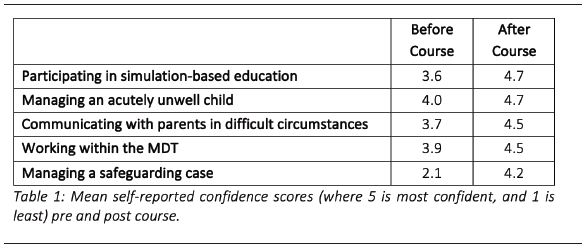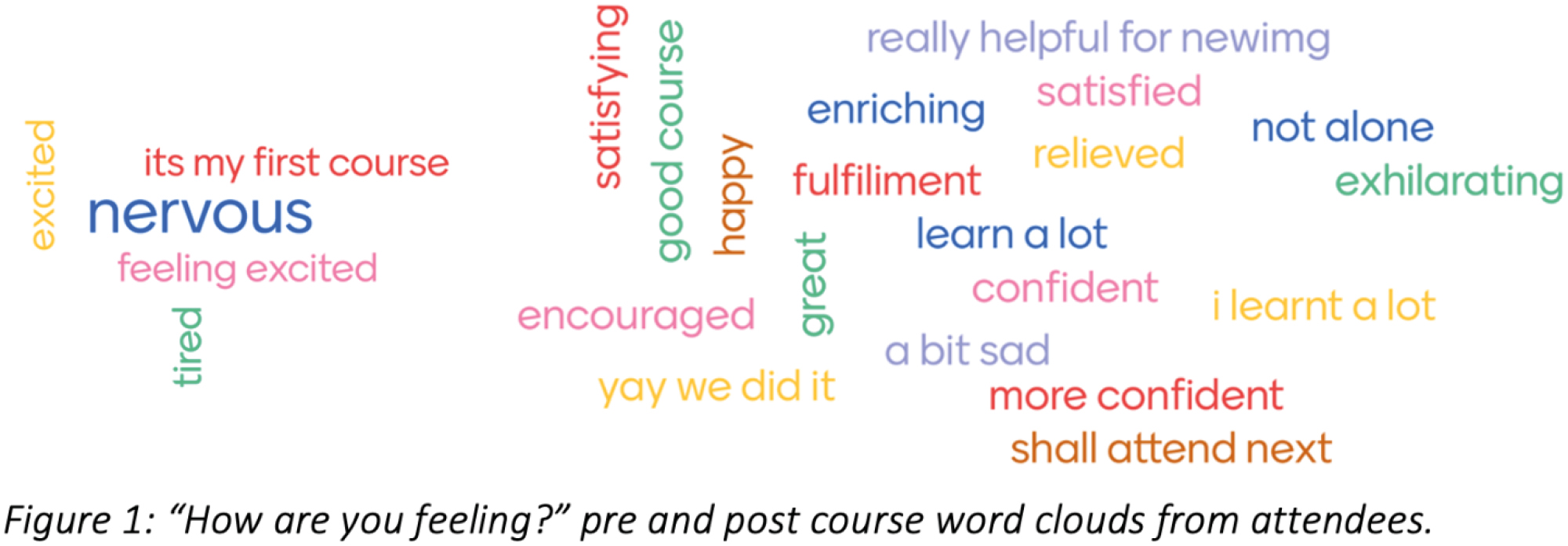
International medical graduates form an essential part of the NHS workforce. Transitioning into NHS work is not straightforward for many: IMGs are significantly more likely to receive complaints, face fitness to practice investigation, and fail postgraduate assessments [1,2]. Creating meaningful opportunities to support IMGs in their transition into the NHS is a daunting task. They represent a heterogeneous group of medical staff and there is no ‘one size fits all’ solution. With the support of Health Education England Southwest funding, we piloted a bespoke simulation-based education (SBE) course for IMGs working in paediatrics, who had been working in the NHS for less than 2 years.
A survey of educational supervisors had suggested that focus areas should include communication, leadership, and team working. This, together with feedback from IMGs was used to design the course. The first course was delivered in Bristol in May 2022 to 8 participants. An introduction to SBE and human factors was followed by five scenarios. Two were manikin-based and focussed on managing the acutely unwell child. Two used simulated participants for communication-based scenarios covering medical error, safeguarding, and incivility. One scenario was a small group-based task prioritisation exercise. Feedback forms and interactive tools were used pre and post to collect mixed quantitative and qualitative data on the experience of participants, with self-reported confidence assessed across several domains.
Participants enjoyed and valued the course (Figure 1). Participants’ self-reported confidence increased in all domains studied, with the greatest increase seen in managing safeguarding cases (Table 1). Participants reported the learning environment to be friendly and supportive and that the course covered important and useful topics. All participants felt that they were able to ask questions, were given meaningful feedback, and that their ideas and experiences were valued, as well as feeling more valued as a member of the paediatrics community. Participants used the opportunity to complete portfolio assessments and have subsequently participated in other SBE activities.

 |


A bespoke simulation course has a role in supporting the professional development and confidence of IMGs, as well as paving the way to access other SBE opportunities. We are excited to refine this course for our next date following feedback from faculty and attendees, including more focussed quantitative and qualitative data collection on non-technical skill development. We look forward to exploring how this course can be incorporated as a longstanding part of the regional educational offer.
1. Woolf K, Rich A, Viney R, Needleman S, Griffin A. Perceived causes of differential attainment in UK postgraduate medical training: A national qualitative study. BMJ Open. 2016;6(11):1–9.
2. British Medical Association. Differential attainment: Making medical training fair for all. 2017;324(7343):952–957.